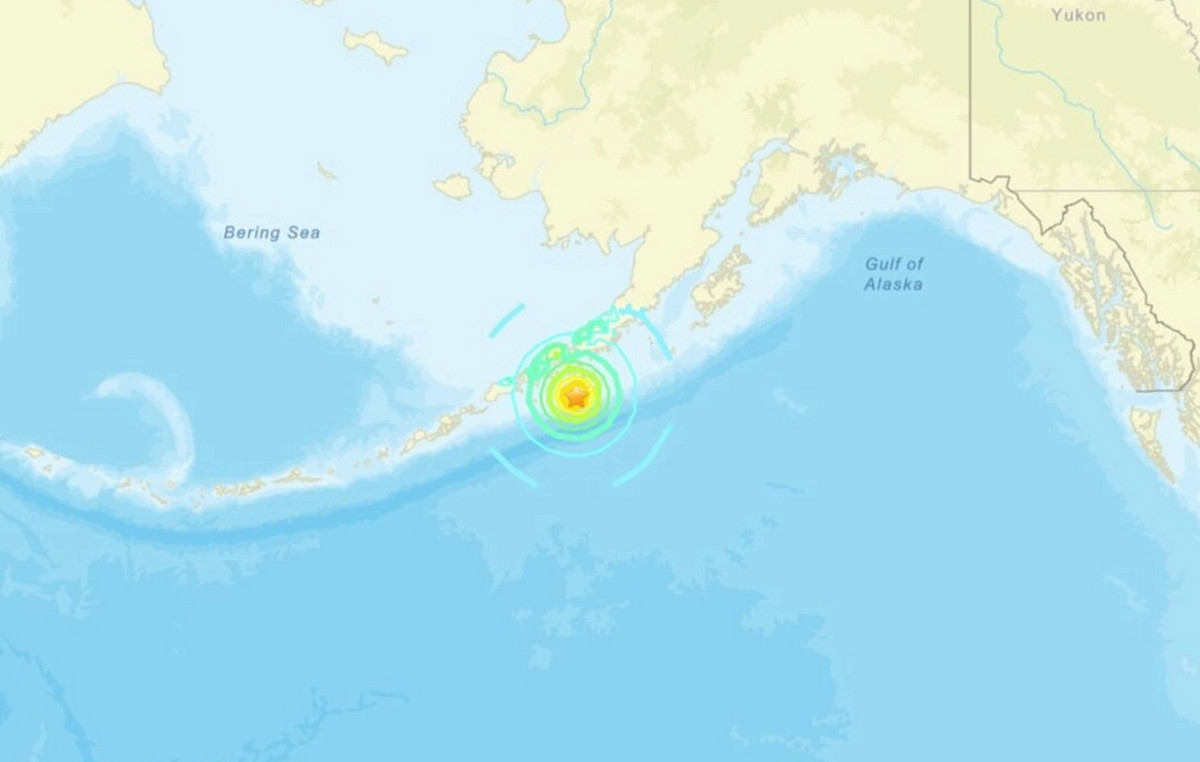The radio of the women of Kabul, Radio Begumwas closed by the Taliban. The news came a few days ago when the Taliban authorities ordered an irruption in the headquarters of the Radio Kabul broadcasts and arrested two employees. Immediately after, the Taliban made it known that “the station was closed for violation of the transmission rules”. Radio Begum was founded in 2021 by the Afghan journalist Hamida Aman And from that day she has become a digital platform and a free voice of Afghan women and Afghan women. In his programs, information was spread above all to middle and high school girls to whom the Taliban have forbidden access to school. But Radio Begum was above all a cry of freedom, through which Afghan women could continue to feel alive and fight for their rights.
Sunishing this item is only the last act of a repression policy that the Taliban have implemented from August 2021 towards women. “The Taliban have always feared educated women because they know that knowledge is power”, explains the Afghan journalist Raya Sahelarrived in Italy in 2021 after fleeing the Taliban siege. «Closing it, they sent a clear message: they want Afghan women to disappear from public life, that they are unheard, invisible, forgotten. But what they don’t understand is that silenced a voice does not mean killing an idea. “
The Afghan journalist Rahel Saya
How are you?
“I am happy. I was lucky. But behind these words there is a story that brings with it both pain and hope, loss and new beginnings. Because the truth is that being a refugee is never easy. Imagine you wake up one day and to realize that everything you once knew, your home, your streets, your city, your people, has become a place where you are no longer safe, you are no longer welcome. Imagine having to leave everything behind, not only places but pieces of yourself, memories that now belong to a past that you may never return again. This is what it means to be a refugee. Do not only cross the boundaries; Leave behind you part of your soul. Italy was good with me. He gave me a second chance, a possibility not only to survive but really live. I am working, I am studying, I am doing things that I could never do in my country, things that, for many, are ordinary but for me, they were once impossible dreams ».
Do you want to give some examples?
«Education, independence, the freedom to choose what I want for my future, these are not just opportunities; They are the pieces of my dignity that I claimed. But integration is not easy. It is never. A few days, I feel like I belonged, as if I finally building a life that seems stable, that seems mine. And other days, I feel lost. I feel like a foreigner, not only in this country but inside myself, as if I were constantly trapped between two worlds: what I left behind and what I am trying to build. The people who supported me, who helped me and are still helping me, have made this journey less painful, less heavy. They gave me something that I thought I had lost forever: a sense of home. I still carry Afghanistan in my heart. Every day I think of the land I left, the people who did not have the opportunity to leave, to women whose voices were silenced, whose dreams have been broken. Here I was given the gift of the possibility.
I smile, because despite everything, I’m still here. And I continue to hope: for myself, for my future and for the day my country will finally be able to breathe again ».
What do you think about what happened on Radio Begum?
“When the Taliban closed it, they didn’t only have a station; They attempted to suffocate dreams, courage and resistance of countless women who dared to believe in a different future. Radio Begum was one of the few platforms dedicated to women’s education and emancipation in Afghanistan, transmitting lessons for girls who had been banned from the school, providing information and giving space to journalists and activists. It was a symbol of resilience in a country where simple speaking as a woman is an act of challenge. What happened on Radio Begum is heartbreaking but not surprising ».
What does it mean?
«The Taliban have always feared educated women because they know that knowledge is power. Closing it, they sent a clear message: they want Afghan women to disappear from public life, that they are unheeded, invisible, forgotten. But what they don’t understand is that putting silent a voice does not mean killing an idea. The spirit of Radio Begum lives in every girl who still dreams of learning, in every woman who refuses to be canceled. The struggle is not over. And as long as there are people willing to speak, even whispering, the message will continue to spread. No regime, however oppressive, can really silence the desire for freedom ».
Why did they decide to censor it?
“In my opinion, the decision to censure Radio Begum was guided by fear: fear of women’s voices, fear of their power and fear of the inevitable change that education and awareness can bring. The Taliban have always tried to suppress the fundamental rights of women, in particular their access to knowledge and their ability to speak. They understand that when women are educated and strengthened, they become unstoppable forces of change. They are no longer easily controllable or silenced and challenge the foundations of the patriarchal system that the Taliban are trying to maintain. Radio Begum, providing education, offering a platform to women to share their stories and amplifying their voices, has become a direct threat to their ideology. The Taliban government is based on silencing women and bordering them in roles they consider acceptable: submissive, invisible, without a voice ».
How would you describe the Radio Begum project?
«It was a station that encouraged women to learn, express and claim their rights was considered dangerous because it clashed directly with the system they tried to impose. It was a vital platform for Afghan women. In addition, Radio Begum was not just about the transmission; It was a matter of building a community, of creating a safe space in which women could speak freely, imagine a future beyond the chains that the Taliban tried to tighten around them. It represented the resistance in its purest form. Closing it, the Taliban hoped to silence not only the station, but the very idea of a free and powerful woman, a woman who dares to dream and act outside the rigid borders they had established. In their eyes, the education and emancipation of women are a direct challenge to their control, because it means that women will no longer accept to be oppressed and will no longer remain in silence on the injustices they face. So, censoring Radio Begum has never only meant closing a radio station; It was a matter of eraseing hope, canceling progress and keeping women in the shadows where they believe they belong. It is an attempt to crush the spirit of change that inevitably, but certainly grows in the hearts of Afghan women ».
What do you think of Afghanistan?
When I think of Afghanistan, my heart breaks into a thousand pieces. For me it is not just a place on a map, it is the land of my memories, of my roots, of my identity. But it is also a place of pain, loss and infinite struggle. I think of the lively roads of Kabul, where I once heard the laughter of the children who played and the voices of women speak freely, dreaming of a better future. I think of the moments before everything changed, the moments in which I still believed that peace could be ours, that our dreams were possible. Now, Afghanistan seems a distant memory, a place with which I have lost contacts, but which I still carry in my heart as an open wound. It is a place where dreams are stolen, where hope vanishes and where the most fundamental freedoms are denied, especially to women. I think of the women who once dared to walk
Freely, go to school, make a career and now face walls of fear and oppression. I think of the girls who have never known what it means to dream without fear, who now face a darker future than the previous one. My love for Afghanistan is full of so much sadness, because I feel him slip away, drown in a sea of violence and despair. But at the same time, I can’t let him go completely. Afghanistan is my country, the land of my ancestors, the land that gave me life, even if it took me so much. Despite everything, I continue to hope ».
Do you miss it?
Yes. I miss the air, the scent of the earth that once seemed so familiar to me, so alive under my feet. I miss the streets, the sounds that told stories of a life that I thought would always be there. There is a part of me that regrets the kabul that I once knew, the vibrant city where laughter and music filled the air, where the world seemed to be better, as if hope was still at hand. But now, when I think about it, I try a deep sadness, because that of Afghanistan no longer exists in the same way. The city that I once knew, with all its chaos and beauty, is lost for me. The roads that I once traveled, the places I visited, now bring everyone a void, as if they also cried what was taken away from me. It is like a dream that I can no longer reach, and the more I want it, the more it seems far away. I miss the feeling of freedom, I miss the possibility of changing, the belief that things could improve. There are so many things that I miss, but it is more than the lack of a place, it is the lack of a part of myself, a part of the
life that I once thought I had ».
Source: Vanity Fair
I’m Susan Karen, a professional writer and editor at World Stock Market. I specialize in Entertainment news, writing stories that keep readers informed on all the latest developments in the industry. With over five years of experience in creating engaging content and copywriting for various media outlets, I have grown to become an invaluable asset to any team.







